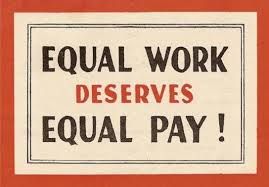Late last night, the Texas Senate finally passed House Bill 950, a state version of the federal Lilly Ledbetter Fair Pay Act of 2009.  Authored by Democratic state Rep. Senfronia Thompson (HD-141), who has served for four decades and is a force to be reckoned with, HB 950
Authored by Democratic state Rep. Senfronia Thompson (HD-141), who has served for four decades and is a force to be reckoned with, HB 950
clarifies that pay discrimination claims based on “sex, race, national origin, age, religion and disability” accrue whenever an employee receives a discriminatory paycheck. Under the measure, a 180-day statute of limitations for filing an equal-pay lawsuit resets with each new discriminatory paycheck.
The bill passed after two Republicans weakened amended it:
One change to the bill, made by state Sen. Robert Deuell, R-Greenville, would limit the equal protection rights to wages, and not to benefits or other compensation. Another change came from state Sen. Robert Duncan, R-Lubbock, and it would require that the act apply only to claims that occur on or after the law takes effect in September.
Every Democratic legislator in the House and the Senate voted for HB 950, but many Republican lawmakers did not. Unfortunately, it wasn’t just Republican men who voted against equal pay for Texas women. Katherine Haenschen at the Burnt Orange Report sums up the situation:
What’s most appalling to me is the number of Republican women who voted against letting other women address gender-based pay discrimination. Jane Nelson, Joan Huffman, Cindy Burkett, Stefani Carter, Angie Chen Button, Myra Crownover, Marsha Farney, Susan King, Stephanie Klick, Lois Kolkhorst, Jodie Laubenberg, and Geanie Morrison — what the heck is wrong with you?! Do you really not recognize that women are paid less than men? Have y’all had such rarefied or willfully ignorant experiences that you don’t realize the need for this legislation? (I don’t understand the pathology of women who vote Republican anyways, but this seems like an extra dose of Stockholm syndrome here.)
When conservative Republican men can vote for this bill — whether for craven political reasons or out of a genuine concern for economic fairness, on some levels it matters not, seeing as the bill passed — and a bunch of professional, successful women serving in our Legislature cannot, these women need to reevaluate their decision-making criteria.

Here’s a fact that should have gotten the attention of more Texas GOP lawmakers, especially the women. Based on reports in the 2012 Census, Texas women outvoted men by approximately 625,000.
Selected Voter Turnout Data for Texas (in thousands)
| Texas (Citizen) | Total Citizen Population | Percent Registered | Percent Voted |
|---|---|---|---|
| Total | |||
| Female | |||
| Male |
Now obviously not all women vote for Democrats, but State Senator Wendy Davis (SD-10) was re-elected in 2012 in part because of a gender turnout gap that had women in her district outvoting men at a greater level than in Texas overall.
When HB 950 gets to his desk, Republican Governor Rick Perry should not be afraid to sign this bill. After all, businesses get to decide whether or not to pay all of their employees fairly:
“Employers who are doing the right thing and treating women fairly don’t view this bill as a threat,” said state Sen. Wendy Davis, D-Fort Worth, who sponsored the bill in the Senate. “Equal pay decisions should be made in the CEO’s office rather than a courtroom.”
And regarding the Republican women who voted against equal pay for equal work, many working women and those who care about them might be inclined, as Haenschen at the BOR was, to recall former Secretary of State Madeleine Albright’s saying:
“I think there is a special place in hell for women who don’t help other women.”